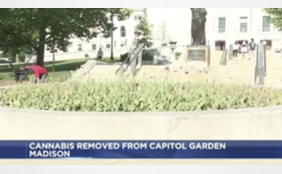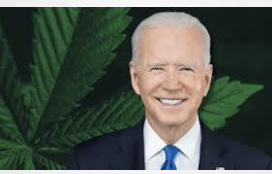545 F. Supp. 981 (1982)
Facts
This case involves the National Organization for the Reform of Marijuana Laws (NORML), a non-profit membership-based organization seeking an injunction against the Drug Enforcement Agency (DEA), the Environmental Protection Agency (EPA), and the Florida Department of Law Enforcement (FDLE) to halt the proposed destruction of illegal cannabis plants found in Florida until the organizations have undergone an environmental impact statement (EIS) on the effect on the environment, in accordance with the National Environmental Policy Act of 1969 (NEPA).
FDLE had planned to destroy the plants with paraquat, an herbicide which can cause harmful effects to people, especially if the cannabis is consumed after having been sprayed but before the plant withers and dies. DEA gave financial and technical assistance to the FDLE for cannabis control, but no money went to the spraying of paraquat. FDLE states that it is their plan to keep controlling cannabis with or without the DEA’s assistance. DEA created an environmental assessment to determine whether an EIS was necessary and concluded that paraquat’s effect would not have a significant effect on the human environment and that the DEA is insufficiently involved in the spraying to require an EIS, EIS are only required for federal action.
The case was brought against all defendants in the District of Columbia, DEA and EPA moved for dismissal because of insufficient federal involvement, and that they have complied with NEPA. FDLE also asserted that DC was an inappropriate venue, subject matter jurisdiction was lacking, and the Eleventh Amendment bars the case.
Issue
Whether DEA’s financial and technical assistance to the program, even without donating money directly to the spraying, constitutes a federal action as to require an EIS through NEPA.
Rule
The United States Court of Appeals for the District of Columbia Circuit has provided guidelines for what constitutes federal action under NEPA: mere federal approval is insufficient; the federal government must make some sort of “overt act” in furtherance of the action at issue. Defenders of Wildlife v. Andrus, 201 U.S. App. D.C. 252, 627 F.2d 1238 (D.C.Cir.1980). Cases finding federal action emphasize authority to exercise discretion over the outcome. 627 F.2d at 1245.
Analysis
FDLE’s arguments regarding inappropriate venue, subject matter jurisdiction, and the Eleventh Amendment were all disregarded since: if as claimed by plaintiff the organizations were working together DC is a proper venue, the case is not so wholly insubstantial and immaterial to be dismissed, and the Eleventh Amendment does not bar a suite which seeks equitable instead of monetary relief.
The Court relied on the lack of federal involvement to reach their conclusion. Florida officials chose to use paraquat, local officials determine where it is used, Florida was planning to destroy the cannabis plants regardless of federal aid, and FDLE has complete control over the project. NORML argued that people may become sick after the plants are sprayed if the cannabis is ingested, but with FDLE’s claim that they would guard the plants until they become unsalable the Court did not find that argument persuasive.
Finally, aside from all of the arguments about whether there was federal action, there is no evidence that any of the defendant’s did not meet the NEPA requirements since it was determined that the spraying would not be harmful enough to require an EIS.
Conclusion
The plaintiff’s motion for an injunction was denied, defendant’s motion for summary judgement was granted.

Jack Fruth
Jack Fruth is a first-year law student, interested in the legacy market, Delta-8 related issues and cannabis law at New York Law School
National Org. for the Reform of Marijuana Laws v. U.S. Drug Enforcement Agency

















